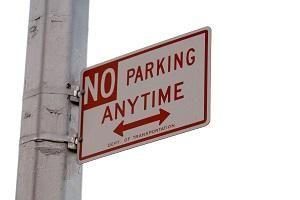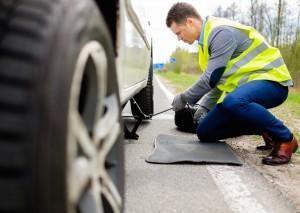The growing complexity of modern trucks is driving changes at maintenance shops and for the workers who have to navigate this increasingly digital world.
“Electronics allow vehicles to have a better conversation with technicians than ever before,” said Kristy LaPage, business manager of the commercial vehicle group at Mitchell 1. “In the transition from mechanical to electronic control systems, there has also been a shift from technicians to diagnosticians. Vehicle electronics are the source of information that can become actionable, so shop solutions are evolving with this change.”
“The digital shop is not only changing inspection and maintenance practices,” said Jeff Sweet, solutions engineer at Decisiv, a provider of a service relationship management (SRM) platform. “Advancements in sensors and monitoring continue to improve fault condition filtering and help prioritize work based on fault severity.”
Photo: Noregon
A solution that simultaneously diagnoses all components is now essential as an intake tool for technicians.
Also constantly under development are the tools technicians need to service advanced electronic systems.
“A solution that simultaneously diagnoses all components is now essential as an intake tool,” stated Tim Bigwood, CEO at Noregon Systems, a provider of JPRO commercial vehicle diagnostic and monitoring solutions. “And those tools have evolved because while previously there were limited fault trees to consider based on symptoms, today’s vehicles are more complex, so the aid of a diagnostic and repair solution is a necessity.”
The increase in electronics on vehicles is allowing for real-time access to the equipment’s operating conditions and fault data, noted Renaldo Adler, industrial principal, asset maintenance, at Trimble Transportation Enterprise.
“Fleets now have access to a vast amount of diagnostic data needed to repair assets faster,” he said. “Inspections can also be improved with the use of electronic diagnostic tools, which analyze the equipment’s condition and any active faults, so maintenance departments are able to be proactive.”
Remote diagnostics
All of the original equipment manufacturers offer systems on their new trucks that provide diagnostic data. These sensor-based and telematics-driven solutions can improve maintenance efficiency and vehicle uptime.
Kenworth dealers, for example, use diagnostic data from TruckTech+ Remote Diagnostics.
“We have found it can cut the time a unit is in our shop by 30%,” said Josh Hayes, branch manager at NorCal Kenworth – San Leandro. “We’ve also found that among trucks with TruckTech+ Remote Diagnostics, we’re seeing about a 15% reduction in the number of trucks that must be towed because remote diagnostics allow us to monitor fault codes and diagnose issues to determine if a truck can be driven into the shop.”
Photo: Mack Trucks
For OEMs, part of the value of remote diagnostics systems is that the vehicle is effectively reporting its own status.
Sanjiv Khurana, general manager of digital vehicle solutions at Daimler Trucks North America, said with the Detroit “virtual technician” system, maintenance managers get real-time alerts and a plan for critical faults. When the truck arrives at the service location, the diagnostic information and fault history allow the technician to get a jump-start on the repair process.
At Peterbilt, SmartLinq remote diagnostics have been integrated with reasoning engine technology to enable more precise diagnostic information, fault code collection, and enhanced analysis by linking cascading faults.
Volvo, Mack, and Navistar also offer their own systems, aimed at reducing downtime and allowing for over-the-air software updates.
“With the increase in electronics on commercial vehicles, fleets have a better understanding of vehicle health,” said Brian Mulshine, director of customer experience for Navistar’s OnCommand Connection.
In short, the value in all of these remote diagnostics systems is that the vehicle is effectively reporting its own status to a maintenance operation.
“The key for truck fleets is to apply electronics to enable a proactive system that adds value and not cost,” said Wally Stegall, technical fellow, director at Morey Corp.
Robert Braswell, executive director of the Technology & Maintenance Council (TMC), noted that greater vehicle complexity makes preventive maintenance more of a challenge. “Until enough fleet data in the field is gathered, it makes it more difficult to optimize service and inspection schedules for new electronic systems,” he explained. “But increasing complexity can bring with it sensor-based maintenance strategies that can help with self-diagnostics.”
Source: https://www.fleetowner.com/maintenance/trucks-get-more-complex-so-does-fleet-maintenance?NL=FO-02&Issue=FO-02_20190321_FO-02_446&sfvc4enews=42&cl=article_1_b&utm_rid=CPENT000004488230&utm_campaign=23847&utm_medium=email&elq2=5bd8750c9eba4791abe0019c109758f6


